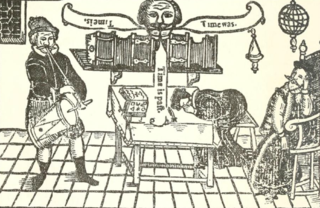 W
WRoger Bacon, also known by the scholastic accolade Doctor Mirabilis, was a medieval English philosopher and Franciscan friar who placed considerable emphasis on the study of nature through empiricism. In the early modern era, he was regarded as a wizard and particularly famed for the story of his mechanical or necromantic brazen head. He is sometimes credited as one of the earliest European advocates of the modern scientific method. Bacon applied the empirical method of Ibn al-Haytham (Alhazen) to observations in texts attributed to Aristotle. Bacon discovered the importance of empirical testing when the results he obtained were different than those that would have been predicted by Aristotle.
 W
WHenry of Bracton, also Henry de Bracton, also Henricus Bracton, or Henry Bratton also Henry Bretton was an English cleric and jurist.
 W
WThomas Bungay, also known as Thomas of Bungay and formerly also known as Friar Bongay, was an English Franciscan friar, scholar, and alchemist.
 W
WJohn of Wallingford was a Benedictine monk at the Abbey of St Albans, who served as the abbey's infirmarer at some time between c.1246-7 and his death in 1258. He is now mostly known through a manuscript containing a miscellaneous collection of material, mostly written up by Wallingford from various works by his contemporary at the abbey Matthew Paris, which survives as British Library Cotton MS Julius D VII. This manuscript includes the so-called Chronica Joannis Wallingford or Chronicle of John of Wallingford.
 W
WRobert Kilwardby was an Archbishop of Canterbury in England and a cardinal. Kilwardby was the first member of a mendicant order to attain a high ecclesiastical office in the English Church.
 W
WStephen Langton was an English Cardinal of the Roman Catholic Church and Archbishop of Canterbury between 1207 and his death in 1228. The dispute between King John of England and Pope Innocent III over his election was a major factor in the crisis which produced Magna Carta in 1215. Cardinal Langton is also credited with having divided the Bible into the standard modern arrangement of chapters used today.
 W
WMarie de France was a poet, possibly born in what is now France, who lived in England during the late 12th century. She lived and wrote at an unknown court, but she and her work were almost certainly known at the royal court of King Henry II of England. Virtually nothing is known of her life; both her given name and its geographical specification come from her manuscripts. However, one written description of her work and popularity from her own era still exists. She is considered by scholars to be the first woman known to write francophone verse.
 W
WMatthew Paris, known as Matthew of Paris, was a Benedictine monk, English chronicler, artist in illuminated manuscripts and cartographer, based at St Albans Abbey in Hertfordshire. He wrote a number of works, mostly historical, which he scribed and illuminated himself, typically in drawings partly coloured with watercolour washes, sometimes called "tinted drawings". Some were written in Latin, some in Anglo-Norman or French verse.
 W
WJohn Peckham was Archbishop of Canterbury in the years 1279–1292. He was a native of Sussex who was educated at Lewes Priory and became a Friar Minor about 1250. He studied at the University of Paris under Bonaventure, where he would later teach theology. From his teaching, he came into conflict with Thomas Aquinas, with whom he debated on two occasions. Known as a conservative theologian, he opposed Aquinas' views on the nature of the soul. Peckham also studied optics and astronomy, and his studies in those subjects were particularly influenced by Roger Bacon and Alhazen.
 W
WWilliam de Montibus was a theologian and teacher. He travelled to Paris in the 1160s, where he studied under Peter Comestor, eventually opening his own school on the Montagne Sainte-Geneviève. He was appointed by Hugh of Lincoln as master of the cathedral school in Lincoln, England in the 1180s, where his lectures drew students from around the country. He was also chancellor of the cathedral by 1194, and remained in both positions until his death in 1213. He was the instructor of Alexander Neckam in Paris, and in Lincoln taught Samuel Presbiter and Richard of Wetheringsett.